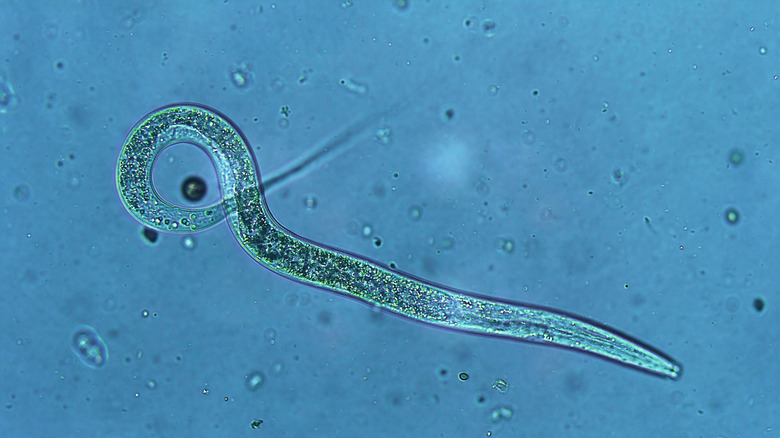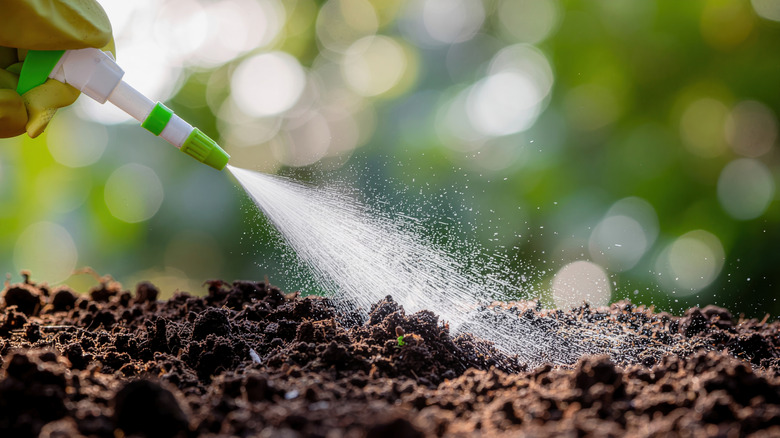Nematodes: Garden Pest Or Gardener's Secret Weapon?
If you're questioning whether nematodes in your soil will damage or benefit your plants and lawn, the answer is a resounding: "It depends." Both things can be true. Most nematodes are actually beneficial because they kill harmful insects, so chances are you have a predominance of the good nematodes. If you've heard only the downsides of nematodes, you might be pleased to learn why releasing nematodes into your garden may not be a bad idea after all.
Let's break it down. Nematodes are microscopic roundworms that live in the soil. Of all animals on earth, they have the highest population. Recent research reveals that for every human being on earth, 57 billion nematodes exist. The more prevalent beneficial nematodes are insect parasites (also called entomopathogenic nematodes). They enter the bodies of their prey and release the bacteria Xenorhabdus sp., killing the pest within 48 hours. The undesirable nematodes are plant parasites that can cause significant damage, especially to a plant's root system.
The definitive way to determine what mix of nematodes you have in your soil is to have it tested by a diagnostic lab. You may also get warning signs that you have plant-parasitic nematodes; symptoms present themselves similarly to the way they do in plants that aren't getting sufficient water. You may see foliage that is wilted, yellow, and thin, along with stunted growth.
How beneficial nematodes work in your garden
But how about those beneficial nematodes? Their benefits are numerous. They will kill some of the the worst garden pests you'll want to banish from your yard. They target about 250 soil-dwelling pests. Nematodes don't depend on nutrients from any particular insect host, so they go after a wide range of pests, mostly in larval form. These include larvae of weevils and borers, white grubs, and many more. Nematodes are environmentally safe to use and also safe for humans and pets, so they appeal to gardeners who prefer not to use chemical pesticides. No evidence has emerged indicating that pests are developing an immunity to the bacteria nematodes release to kill their hosts.
You have a couple of options if you'd like to ramp up your use of nematodes for controlling soil-dwelling pests. The first is to offer your hospitality by providing rich, quality soil that is loamy and rich in organic matter, such as your own DIY compost. Keeping the soil moist is also important because nematodes travel through the water between soil particles; they are actually considered aquatic animals! You can also inexpensively purchase nematodes, but keep in mind they are fussy about having the ideal conditions and may not survive if they don't. The conditions include moist soil, humidity, moderate air temperature, soil temperature between 55 and 90 degrees Fahrenheit, and indirect sunlight.

